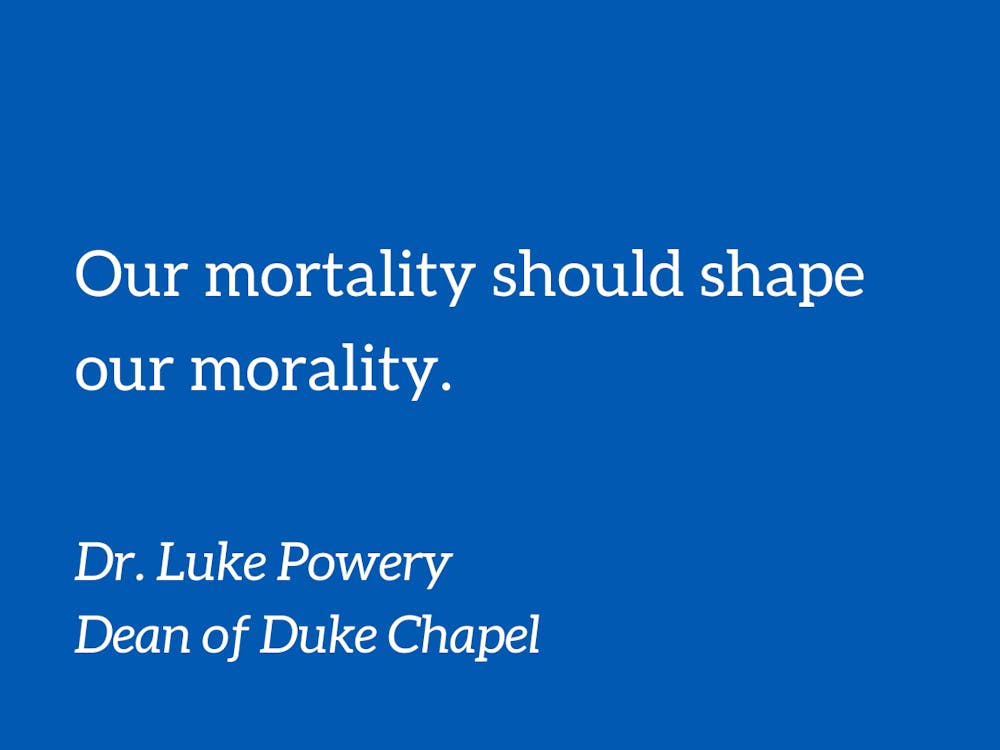Death has been all over the news recently. Causes? Earthquakes. Gun violence. Suicides. War. The list is innumerable. The spiritual is right again: “Death ain’t nothin’ but a robber.” Yet, facing the fact of our mortality, of our dying, can help us in our living.
Ancient wisdom tells us that “we brought nothing into the world, [and] we can take nothing out of it” (1 Timothy 6:7). This means that we live in between the bookends of nothing. The in-between life has been described as the dash between our birth date and death date. The dash represents our life on earth, so I have a question for you: What are you doing with your dash?
I still remember the phone call when I was 13 years old. The phone rang in my bedroom. It was a friend from my church youth group. He didn’t say “hello” or “what’s up” or call me by my nickname ‘Luke Skywalker.’ All he said when I answered the phone was, “Susan is dead. Susan is dead.” Our 12-year-old church friend had died, rushed to the hospital because of stomach aches only to find out that her intestines had twisted. Susan was dead. Her funeral was my first one ever.
In more recent years, I received another phone call. This one on December 23, 2021. It was news no one expected. My Uncle John had suddenly died. The youngest and strongest of my mother’s siblings. His death was a reminder that the dash between our birth dates and death dates is never too long. A poet of the Bible’s psalms puts it this way (Psalm 103: 15–16):
"As for mortals, their days are like grass; they flourish like a flower of the field; for the wind passes over it, and it is gone, and its place knows it no more."
The renowned surgeon and writer Atul Gawande reminds us of this in his book, Being Mortal. He notes his initial shock of “seeing medicine not pull people through.” He says, “I knew theoretically that my patients could die, of course, but every actual instance seemed like a violation.” New medical technologies and discoveries do not destroy the reality of our mortality.
Recognizing your mortality raises the question of morality—what is worth doing with the something you’ve been given in between nothing? What are you doing with your dash? As the grandfather of Howard University professor Kenyatta Gilbert once asked, “Are you making a living or making a life?”
We do a disservice to our dash, the time we’ve been given on earth, when we thirst and hunt for everything when our beginning and end is nothing. We can gain so much materially and economically and still be so discontent. Remember, we brought nothing into the world, and we can take nothing out of it. We all will end up in a box like Queen Elizabeth II. This is true for queens, kings, princes, priests, and paupers.
In the face of the stark reality of mortality, there isn’t an easy answer that applies to everyone, but we can pause and follow the encouragement of the theologian Howard Thurman to “sit quietly and see one’s self pass by.”
The dash of life is short. Our mortality should shape our morality. So as you see yourself in quiet, what are you doing with your dash? I hope you are making a life.
The Rev. Dr. Luke A. Powery is Dean of Duke University Chapel. His column runs on alternate Mondays.
Get The Chronicle straight to your inbox
Signup for our weekly newsletter. Cancel at any time.

